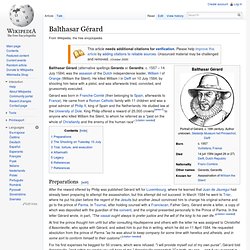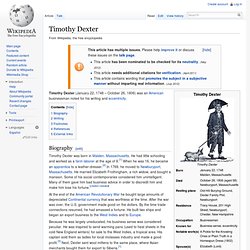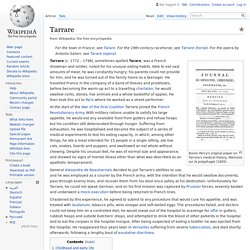

Miserere (Allegri) Miserere (full title: Miserere mei, Deus, Latin for "Have mercy on me, O God") is a setting of Psalm 51 (50) by Italian composer Gregorio Allegri.

It was composed during the reign of Pope Urban VIII, probably during the 1630s, for use in the Sistine Chapel during matins, as part of the exclusive Tenebrae service on Holy Wednesday and Good Friday of Holy Week. The Miserere is written for two choirs, one of five and one of four voices, and is an example of Renaissance polyphony surviving to the present day. One of the choirs sings a simple version of the original Miserere chant; the other, spatially separated, sings an ornamented "commentary" on this.
The Tenebrae service where the Miserere would be sung normally began at dusk, hence the name. During the ritual, candles would be extinguished one by one, save for the last candle which remained alight and was then hidden. Allegri's Miserere is one of the most often-recorded examples of late Renaissance music. List of films set in the future. List of films considered the worst. Balthasar Gérard. Balthasar Gérard (alternative spellings Gerards or Gerardts; c. 1557 – 14 July 1584) was the assassin of the Dutch independence leader, William I of Orange (William the Silent).

Timothy Dexter. Biography[edit]

Star Trek. Star Trek has been a cult phenomenon for decades.[1] Fans of the franchise are called Trekkies or Trekkers.

The franchise spans a wide range of spin-offs including games, figurines, novels, toys, and comics. Star Trek had a themed attraction in Las Vegas which opened in 1998 and closed in September 2008. At least two museum exhibits of props travel the world. The series has its own full-fledged constructed language, Klingon. Several parodies have been made of Star Trek. Conception and setting The Starfleet emblem as seen in the franchise. Most Star Trek stories depict the adventures of humans[Note 4] and aliens who serve in Starfleet, the space-borne humanitarian and peacekeeping armada of the United Federation of Planets.
Roddenberry intended the show to have a highly progressive political agenda reflective of the emerging counter-culture of the youth movement, though he was not fully forthcoming to the networks about this. History and production. Carl Tanzler. Carl Tanzler, or sometimes Count Carl von Cosel (February 8, 1877 – July 3, 1952), was a German-born radiologic technologist at the United States Marine Hospital in Key West, Florida who developed a morbid obsession for a young Cuban-American tuberculosis patient, Elena Milagro "Helen" de Hoyos (July 31, 1909 – October 25, 1931), that carried on well after the disease had caused her death.[1] In 1933, almost two years after her death, Tanzler removed Hoyos's body from its tomb, and lived with the corpse at his home for seven years until its discovery by Hoyos's relatives and authorities in 1940.[2] Name[edit] Tanzler went by many names; he was listed as Georg Karl Tänzler on his German marriage certificate.

He was listed as Carl Tanzler von Cosel on his United States citizenship papers, and he was listed as Carl Tanzler on his Florida death certificate. Some of his hospital records were signed Count Carl Tanzler von Cosel. Early life[edit] Tanzler grew up in Germany. Morbid obsession[edit] Rat king (folklore) Rat king in the scientific museum Mauritianum Altenburg, Germany A rat king is a term for a number of rats whose tails are intertwined and bound together by one of several possible mechanisms, such as entangling material like hair or sticky substances like sap. The number of rats joined together varies from a few to as many as 30. Historically, the phenomenon is particularly associated with Germany, which produced many reported instances.
Rat kings occur so rarely that they have sometimes been thought to be cryptids, but there are several well-attested modern occurrences. A similar phenomenon happens with other small rodents such as forest mice and squirrels. In folklore, rat kings are associated with various superstitions and were often seen as a bad omen, particularly associated with plagues. Fox News Channel controversies.
Critics of Fox News Channel have accused the network of having various biases in their coverage of certain events.

Fox News has publicly denied such charges,[1] stating that the reporters in the newsroom provide separate, neutral reporting.[2] Progressive media watch dog groups such as Fairness and Accuracy in Reporting (FAIR) and Media Matters for America, have argued that Fox News reporting contains conservative editorializing within news stories.[3][4] Former Fox News personality Eric Burns has suggested in an interview that Fox "probably gives voice to more conservatives than the other networks. But not at the expense of liberals. " Burns justifies a higher exposure of conservatives by saying that other media often ignore conservatives.[5] CNN's Larry King said in a January 17, 2007, interview with the Chicago Sun-Times, "They're a Republican brand.
They're an extension of the Republican Party with some exceptions, [like] Greta van Susteren. Tarrare. Baron Percy's original paper on Tarrare's medical history, Mémoire sur la polyphagie (1805) Tarrare (c. 1772 – 1798), sometimes spelled Tarare, was a French showman and soldier, noted for his unusual eating habits.

Able to eat vast amounts of meat, he was constantly hungry; his parents could not provide for him, and he was turned out of the family home as a teenager. He travelled France in the company of a band of thieves and prostitutes, before becoming the warm-up act to a travelling charlatan; he would swallow corks, stones, live animals and a whole basketful of apples. He then took this act to Paris where he worked as a street performer. At the start of the War of the First Coalition Tarrare joined the French Revolutionary Army. Childhood and early life[edit] Tarrare was born in rural France, near Lyon, around 1772.[1][2][note 1] His date of birth is unrecorded and it is not even known if Tarrare was his real name or a nickname.
Appearance and behaviour[edit]